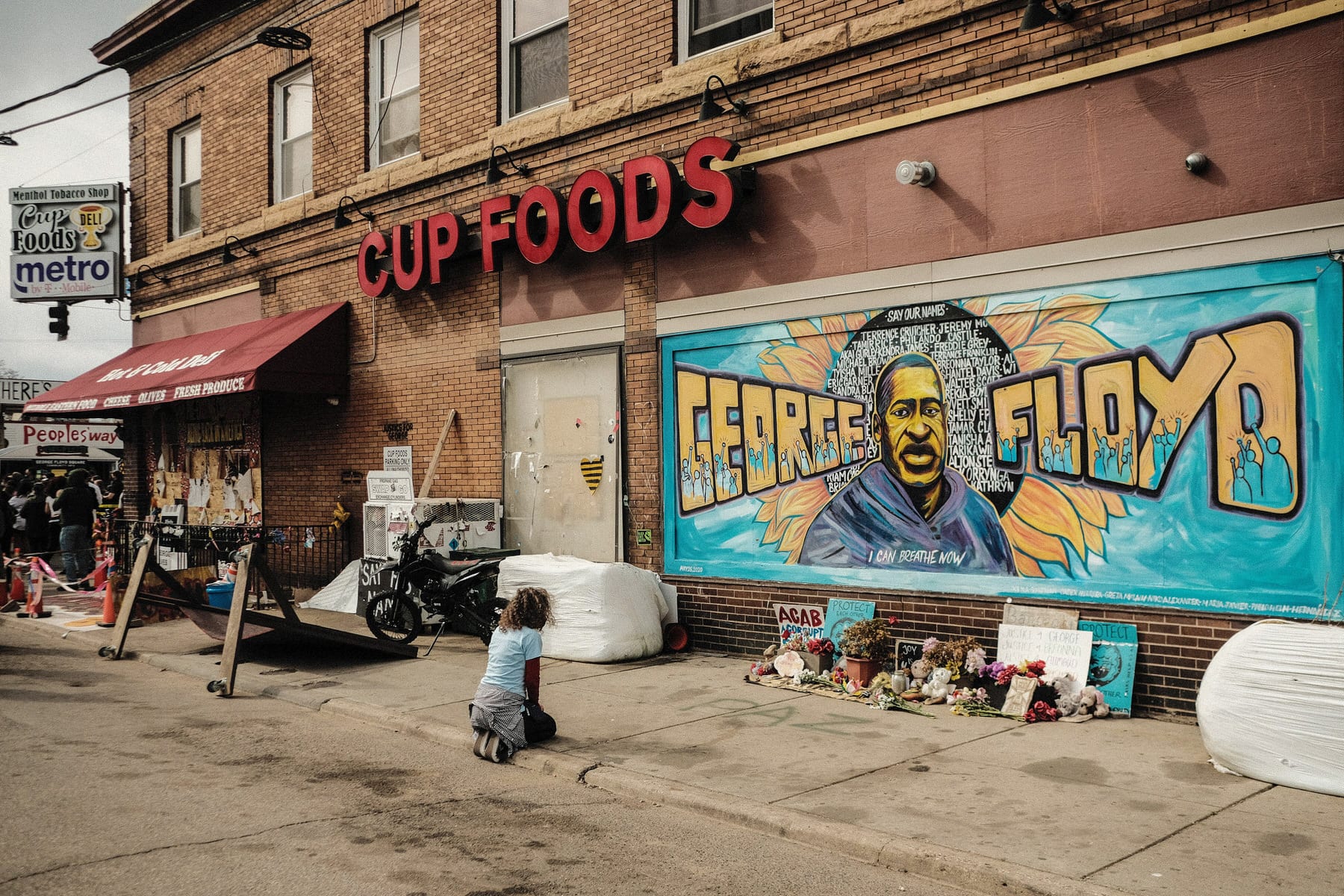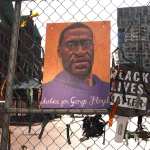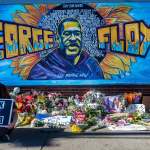A jury of mostly women convicted former Minneapolis police officer Derek Chauvin for the murder of George Floyd in one of the most consequential police brutality trials in history. Chauvin was found guilty of second-degree unintentional murder, third-degree murder and second-degree manslaughter for pressing his knee into George Floyd’s neck for nearly 10 minutes until he became unresponsive.
The jury was sequestered overnight for the first time in the month-long trial and unanimously found Chauvin guilty after 10 hours of deliberation. Sentencing will happen in eight weeks.
Seven women — four White women in their 40s and 50s, a mixed-race woman in her 20s, a mixed-race woman in her 40s and a Black woman in her 60s — and five men — three Black men in their 30s and 40s and two White men in their 20s and 30s — sat through weeks of testimony.
The jury weighed if Chauvin acted reasonably and according to training, ultimately concluding that he assaulted Floyd and unintentionally killed him, according to state statute of second-degree unintentional murder, also called felony murder. The jurors also determined Chauvin “evinced a depraved mind,” according to third-degree murder doctrine and acted with “culpable negligence,” according to second-degree manslaughter laws.
Testimony began at the end of March with emotional eyewitness accounts, including from four young girls whose lives changed forever as they witnessed Floyd lose his. Darnella Frazier, who was 17 at the time, was on her way to the Cup Foods convenience store with her 9-year-old cousin when she saw Floyd pinned to the ground and immediately started recording the incident using her cell phone. Her 10-minute video played an outsized role in the trial and swayed public opinion, according to witness testimony. However, as Frazier revealed to the jury, bearing witness to homicide comes at a cost.
“It’s been nights I stayed up apologizing and apologizing to George Floyd for not doing more and not physically interacting and not saving his life,” Frazier said.
Weeks later, the defense called Shawanda Hill, who was in the SUV with Floyd when officers arrived after a Cup Foods worker called the police, alleging that Floyd had tried to pay with a counterfeit $20 bill. Floyd had been falling asleep in the truck, and Hill woke him up to alert him that the police were approaching, she said. Officers had their guns drawn when they approached Floyd, who was in the driver’s seat, Hill said. Later she testified that Floyd had no trouble breathing or shortness of breath before he had been thrown to the ground.
The jury also heard details about Floyd’s life beyond the moments just preceding his death. Minnesota trial law permits what are called “spark of life” witnesses for the sole purpose of depicting victims like Floyd as human beings and “not just bones and sinews covered with flesh,” according to the 1985 state Supreme Court the doctrine is rooted in.
George Floyd’s younger brother, Philonise Floyd, described his late brother as a “big mama’s boy” who couldn’t cook but excelled in sports like basketball and football, both of which he played in college. The last time Philonise had seen George was during their mother’s funeral in May 2018, where George laid over her repeating “Mama, Mama,” over and over again, kissing her, Philonise told the jury. Growing up, he said George often curled up with their mom in the fetal position, as if he were still in the womb. “It was so unique how they were with each other,” Philonise said. “He loved her so dearly.”
She was the one George Floyd called out for as Chauvin’s knee made it harder and harder for him to breathe. “I can’t believe this, man,” Floyd said on May 25, 2020. “Mom, I love you. I love you.”
The spark-of-life doctrine also permitted Courteney Ross, Floyd’s girlfriend, to share how they met, the role of religion in Floyd’s life and how they battled opioid addiction. Her testimony prompted Chauvin’s attorneys to get deeper into Floyd’s history with drugs. Throughout the trial, the defense argued Floyd’s heart gave out because of high blood pressure and heart disease, in addition to the fentanyl and methamphetamine discovered in his system. It also could have been carbon monoxide poisoning from the tailpipe of the police car, one defense witness argued.
Chauvin’s lawyers also invoked excited delirium, a controversial syndrome not recognized by the American Medical Association or the American Psychiatric Association, in which a person who might be abusing drugs suddenly possesses superhuman strength and may die suddenly.
At the scene of Floyd’s killing, a fellow officer mentioned that he was “concerned” about excited delirium. “Well, that’s why we got the ambulance coming,” Chauvin replied, his knee still in Floyd’s neck.
“There was no superhuman strength that day,” prosecuting attorney Steve Schleicher said in closing arguments. “There was no superhuman strength because there’s no such thing as a superhuman. Those exist in comic books, and 38th and Chicago is a very real place. Not super humans, only humans, — just a man lying on a pavement being pressed upon, desperately crying out, a grown man crying out for his mother.”
Although the presiding judge asked the jury to ignore the news during the trial, the police killing of Daunte Wright, another Black man in nearby Brooklyn Center, Minnesota, served a backdrop to their deliberations. At least one juror lives there.
Rep. Maxine Waters, who traveled to Brooklyn Center over the weekend, encouraged protests to continue, especially if jurors had found Chauvin not guilty.
“We got to stay on the street. And we’ve got to get more active, we’ve got to get more confrontational. We’ve got to make sure that they know that we mean business,” she said Saturday.
In court on Monday, Chauvin’s attorneys argued that public coverage of the trial and Waters’ comments were grounds for a mistrial. Although Judge Peter Cahill said he found Waters’ comments “disrespectful to the rule of law and to the judicial branch” and told the defense her comments “may have given [the defense] something on appeal that may result in this whole trial being overturned,” he did not grant the motion for a mistrial. Chauvin’s lawyers will likely appeal the verdict.
On Monday, Schleicher emphasized that policing, which he characterized as a “noble profession,” was not on trial — only one former officer was. Ten Minneapolis police officers testified against Chauvin, including the police chief, Medaria Arradondo, who told the jury Chauvin applying the level of force he did to a prone person who was handcuffed was not part of the department’s training, ethics, values or policies.
Prosecuting attorney Jerry Blackwell, who is working pro bono for the attorney general’s office, rounded out closing arguments with a final appeal to the jury to convict Chauvin.
“Mr. Floyd died because his heart was too big — you heard that testimony … You know the truth. And the truth of the matter is that the reason George Floyd is dead is because Mr. Chauvin’s heart was too small,” Blackwell said.






